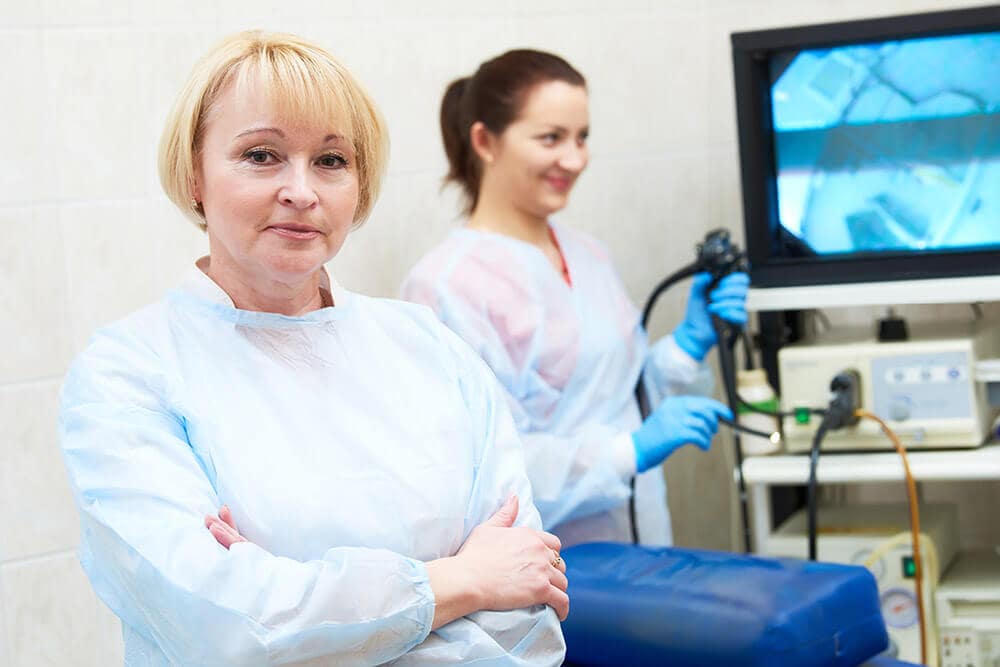
Digestive issues make normal life miserable. You can be bloated, heartburned, or experience sharp pain in the stomach. In unresponsive cases to basic treatments, your GI physician at Houston will recommend an upper endoscopy.
It is a very easy procedure that allows your doctor to view your esophagus, stomach and the upper small intestine. It assists in the detection of issues that may not have been detected by blood tests or scans.
An upper endoscopy lets us see straight inside what is going on inside, says gastroenterologist Dr. Bharat Pothuri, of Gastrodoxs in the Texas Medical Center. It assists us in treating the underlying problem rather than having a guess.
The endoscopy (or EGD) is an examination of the small intestine that involves a light and camera on an endoscope, which is a thin, flexible tube. It is easily pushed through your mouth and down your throat into your stomach and the upper small intestine by your doctor.
Dr. Pothuri can easily observe the mucosa of your GI tract. We do inflammation, ulcer, narrowing, and even early cancers.
This process is capable of identifying numerous issues within your upper tract of the digestive system such as:
H. pylori is a widespread infection, which can be tested by biopsies and is associated with ulcers and gastritis.
Online source: NIH Helicobacter pylori.
This test may be suggested by your doctor in case you have:
Endoscopy assists in getting to the root of the answer when other tests have failed to provide any clear results, explains Dr. Pothuri. It is the most useful equipment to use in upper GI.
Pain in the stomach is associated with a variety of causes. Blood tests and imaging can provide insufficient leads. An upper endoscopy of the upper part would reveal the exact issue allowing treatment to be more targeted.
According to Dr. Pothuri, the food scene in Houston is a diverse one. Other patients are sensitive to spicy foods. Others have silent' reflux. This test assists us in treating every individual appropriately.
There are cases when scans and lab tests do not give your symptoms. This is when an endoscopy due to the unexplainable digestive problems comes in.
According to Dr. Pothuri, many patients complain saying, I have tried everything and I still feel ill. Endoscopy usually provides the answer that they were seeking.
| Feature | Upper Endoscopy | CT Scan | Barium Swallow |
| Direct View Inside? | Yes | No | Limited |
| Can Take Biopsies? | Yes | No | No |
| Uses Radiation? | No | Yes | Yes |
| Sedation Needed? | Light Sedation | Sometimes | No |
| Time Needed | 1-2 hours | 30-60 mins | 30-60 mins |
| Best For | Lining, small lesions | Deep tissue views | Swallowing problems |
According to Dr. Pothuri, good preparations are the best way to get the best results. “It helps us find answers fast.
After you have woken up, your doctor will tell you what he or she has found.
Contact us or visit the ER in case of severe pain, inability to swallow, or a body temperature higher than 100.4 degree F.
Choose a center that is providing:
Our center, Gastrodoxs, located in the Texas Medical Center is technologically advanced and has a team committed to serving the patient first.
An upper endoscopy is a non-invasive, non-invasive method of knowing your digestive symptoms. It identifies causes which other tests may overlook and can assist in directing the appropriate treatment.
In case you have stomach pain, reflux or digestion issues in Houston, visit Dr. Bharat Pothuri in Gastrodoxs. We are here to make you feel good, inside out.
An upper endoscopy is a direct view of the lining of your esophagus, stomach and duodenum. It is able to identify inflammation, ulcers, strictures, hiatal hernias, and Barrett changes, polyps, and tumors among other abnormalities.
Your doctor can more precisely identify the source of pain ulcers, gastritis, reflux damage, or unusual lesions to treat it accurately instead of by guesswork.
Majority of the patients experience mild pain. Light sedation and spray on throat make you comfortable and relaxed during the procedure.
You are asked to fast 6-8hours, to be lightly seded by IV, on your side, and a fine, bendable tube complete with a camera is slotted into your mouth to view your upper GI tract. Biopsies may be performed at will.
The camera check-up alone is approximately 5-15 minutes. Plan on 1-2 hours at the endoscopy center including prep and recovery time.
With clear liquids begin when you recover. You can resume the soft diet slowly then resume your normal foods in bits in case you feel fine.
As a result, the risks are low, but may include bleeding at the biopsy sites, infection, or, extremely uncommonly, a tear (perforation). To reduce these risks our team adheres to high safety standards.
Eat and/or drink 6-8 hours before the exam. Always make sure to review all your medication (particularly blood thinners) with your doctor, use comfortable clothes and have someone drive home with you.
A majority of insurance covers an upper endoscopy when it is medically needed. Before the procedure, our billing department will be able to check your coverage and clarify any out-of-pocket payments.
Your doctor will discuss some first results immediately after the procedure. In case of biopsies, results of pathology would be expected in just 3-5 days, at which point you would address a customized treatment plan.